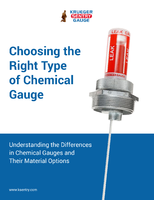Revised Standard paves way for use of SIP fuel in airliners.
Press Release Summary:
Renewable Synthesized Iso-Paraffinic fuel has now been included in ASTM International standard D7566, Specification for Aviation Turbine Fuel Containing Synthesized Hydrocarbons. Standard has been revised to incorporate international material specifications for SIP, or low carbon aviation fuel, ensuring fuel quality equal or superior to petroleum-derived aviation turbine fuels. Primary users include fuel producers/distributors, aircraft, and fuel system/turbine engine manufacturers.
Original Press Release:
Revised ASTM Aviation Fuel Standard Paves the Way for International Use of Synthesized Iso-Paraffinic Fuel in Airliners
Renewable Synthesized Iso-Paraffinic (SIP) fuel has now been included in ASTM International standard D7566, Specification for Aviation Turbine Fuel Containing Synthesized Hydrocarbons. A recently approved revision that adds SIP fuel to the ASTM D7566 annex will facilitate use of the fuels in all airlines internationally.
“The introduction of renewable fuel into the aviation industry enables a meaningful reduction of greenhouse gas emissions without compromising fuel performance,” says ASTM member Fernando Garcia, senior director, scientific and regulatory affairs, Amyris Inc. “Independent analysis indicates that renewable farnesane hydrocarbon produced from sugarcane can reduce greenhouse gas emissions by more than 50 percent when compared to conventional Jet A/A1 fuel.”
First approved in 2009, ASTM D7566 covers an end-to-end evaluation program to verify and ensure that products covered by the standard are fully compatible with all engine parts and all material and equipment used in the supply chain. The standard has recently been revised to incorporate international material specifications for SIP, or low carbon aviation fuel, ensuring fuel quality equal or superior to petroleum-derived aviation turbine fuels.
ASTM member Olivier Rolland, Total-Amyris alliance manager at Total, notes that ASTM D7566 affirms the safety of using renewable fuels in airplanes. “The primary users of the new renewable fuels include the global aviation industry, from fuel producers and distributors, aircraft, fuel system and turbine engine manufacturers, to airlines throughout the world,” says Rolland.
In addition to being used to ensure flight safety, ASTM D7566 also functions as a reference fuel standard when validating aviation turbine engines, aircraft fuel systems and ground fuel-handling equipment.
ASTM D7566 is under the jurisdiction of Subcommittee D02.J0.06 on Emerging Turbine Fuels, part of ASTM International Committee D02 on Petroleum Products, Liquid Fuels, and Lubricants. All interested parties are encouraged to join in the standards developing activities of D02.J0.06. The task group is particularly interested in participation from fuel distributors, airport fuel handlers and airlines that wish to use low carbon aviation turbine fuels, including SIP fuels.
To purchase ASTM standards, visit www.astm.org  and search by the standard designation, or contact
ASTM Customer Relations (phone: 877-909-ASTM; sales@astm.org). Â ASTM International welcomes participation in the development of its standards. For more information on becoming an ASTM member, visit www.astm.org/JOIN.
For more news in this sector, visit www.astm.org/sntransportation
ASTM Committee D02 Upcoming Meetings: June 22-26, 2014, D02 June meeting, Indianapolis, Ind.; and Dec. 7-14,
2014, D02 December meeting, San Diego, Calif.
Technical Contact: Olivier Rolland, Total New Energies USA, Emeryville, Calif., Phone: 510-788-6732; olivier.rolland@total.com; Â Fernando J. Garcia, Amyris, Emeryville, Calif., Phone: 510-597-4835; garcia@amyris.com
ASTM Staff Contact: Alyson Fick, Phone: 610-832-9710; afick@astm.org
ASTM PR Contact: Barbara Schindler, Phone: 610-832-9603; bschindl@astm.org




